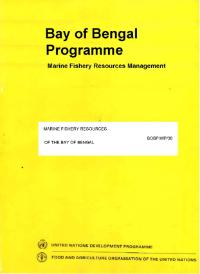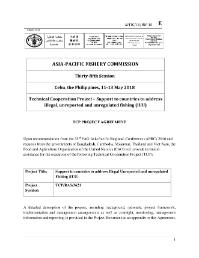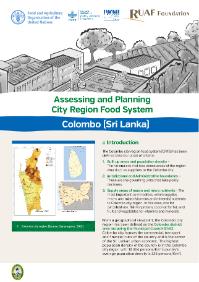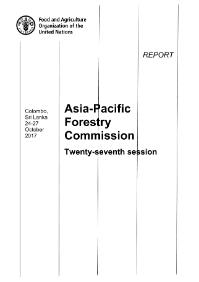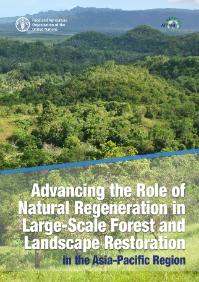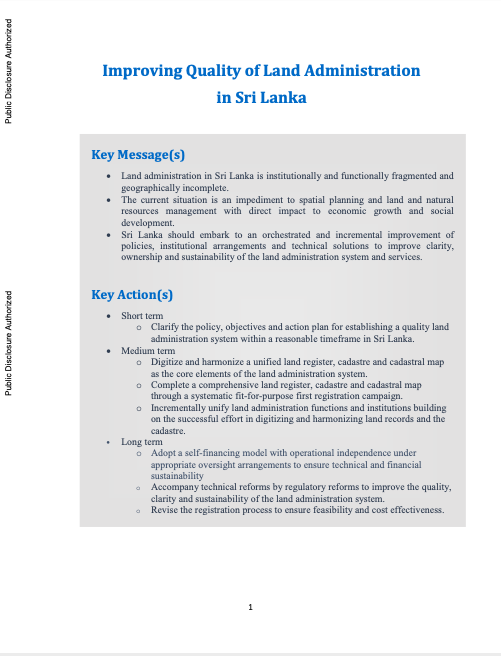This paper attempts to summarize available knowledge, and identify the gaps in that knowledge, on marine fisheries and fishery resources in the Bay of Bengal region. It provides information on Bangladesh, Burma, India, Indonesia, Maldives, Malaysia, Sri Lanka and Thailand—their marine fisheries…
Meeting Name: Asia-Pacific Fishery Commission (APFIC)
Meeting symbol/code: APFIC/18/INF-10
Storage of surface water is widely regarded as a form of insurance against rainfall variability. However, creation of surface storage often endanger the functions of natural ecosystems, and, in turn, ecosystem services that bene t humans. The issues of optimal size, placement and the number of…
This factsheet provides information on the general progress achieved through the City Region Food System project in areas such as food production and distribution, food consumption, food value chain, food waste and loss, as well as climate change adaptation.
This publication reports the proceedings of the twenty-sixth session of the Asia-Pacific Forestry Commission (APFC) held in Colombo, Sri Lanka, from 23 to 27 October 2017. The main themes considered were: Forestry in a new landscape; Guidelines for using forest concessions to manage public…
There are numerous global, regional, national and even subnational targets for increasing forest area and forest restoration. In light of these global targets and emerging ambitious national commitments, it is imperative to develop low-cost strategies and techniques for landscape restoration.…
The Kalu Ganga Basin in Sri Lanka is generally flooded once a year. A network of low-lying lands acts as natural retention and storage that captures floodwater, minimizing damage. An increase in the flood frequency has been observed in recent years. It is commonly perceived that this increase is…
Moderate Resolution Imaging Spectro-radiometer (MODIS) time-series Normalized Differential Vegetation Index (NDVI) products are regularly used for vegetation monitoring missions and climate change analysis. However, satellite observation is affected by the atmospheric condition, cloud state and…
Land is an imperative and crucial factor in the social, cultural and economic identity of the people in Sri Lanka due to the importance it has been given throughout our history. Moreover, the rights and interests over land are unequivocally and legally secured without any discrimination on the…
Land administration in Sri Lanka is institutionally and functionally fragmented and geographically incomplete. The current situation is an impediment to spatial planning and land and natural resources management with direct impact to economic growth and social development. Sri Lanka should…
Coming two years after a political transition from post-war authoritarianism, this Shadow Report to the United Nations Committee on Economic Social and Cultural Rights is framed in the backdrop of two concurrent processes of ‘transformation’ currently underway in Sri Lanka. The first is the…
This study is prepared using the data analysis of a field study conducted in January 2017 in the Districts of Monaragala, Ampara, Trincomalee, Mullaitivu and Jaffna in Sri Lanka focusing on the land rights violations that took place in the recent past due to the appropriation of land from the…


